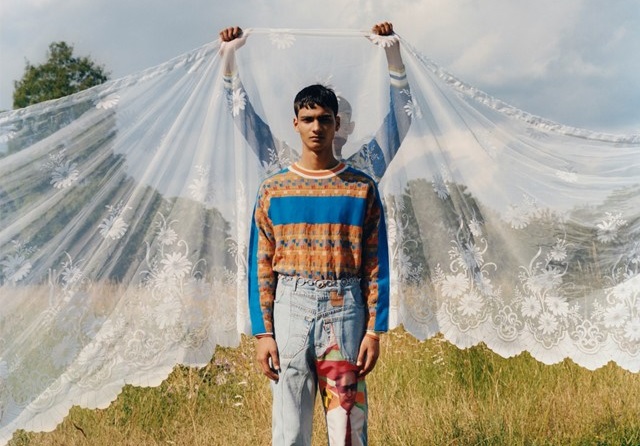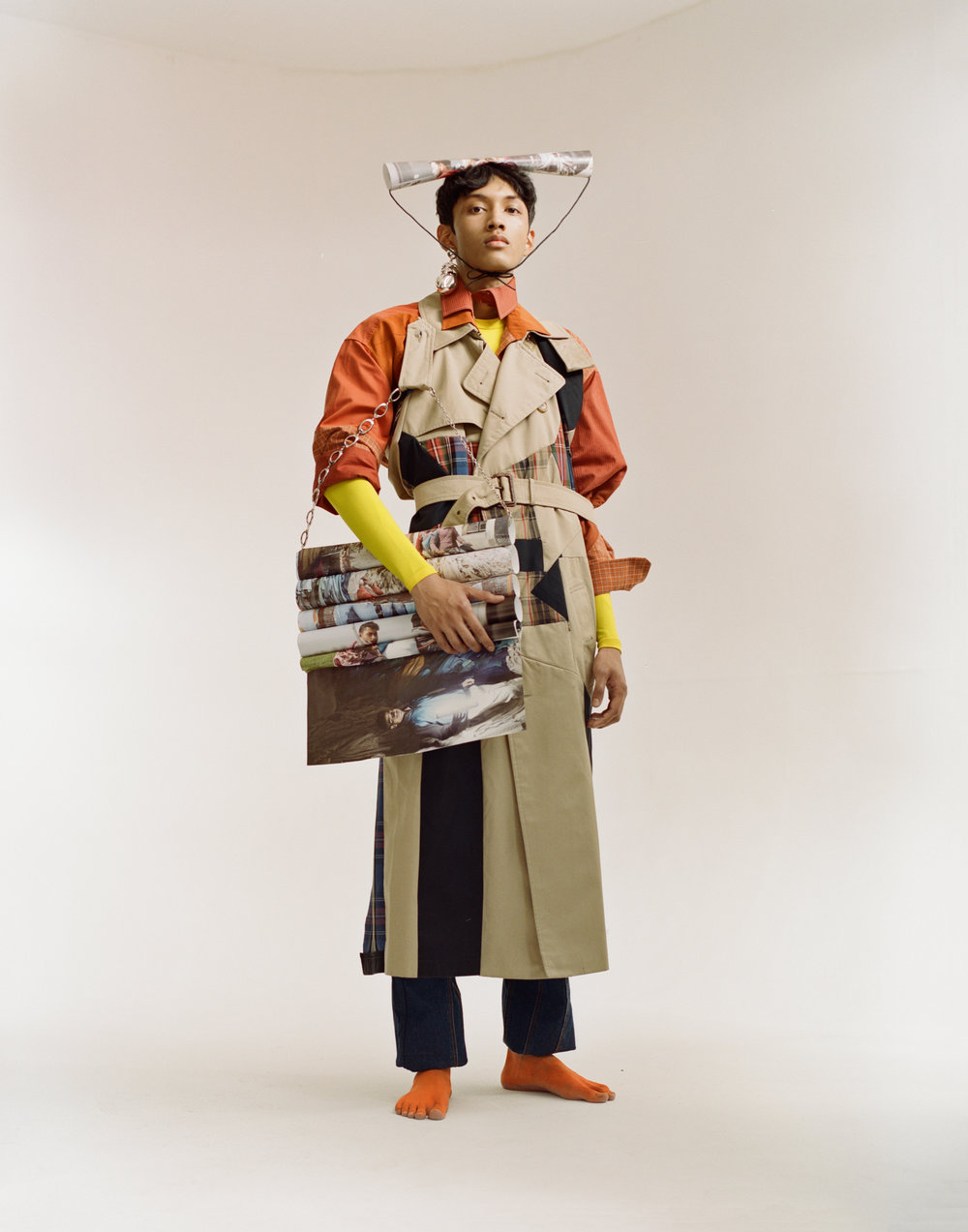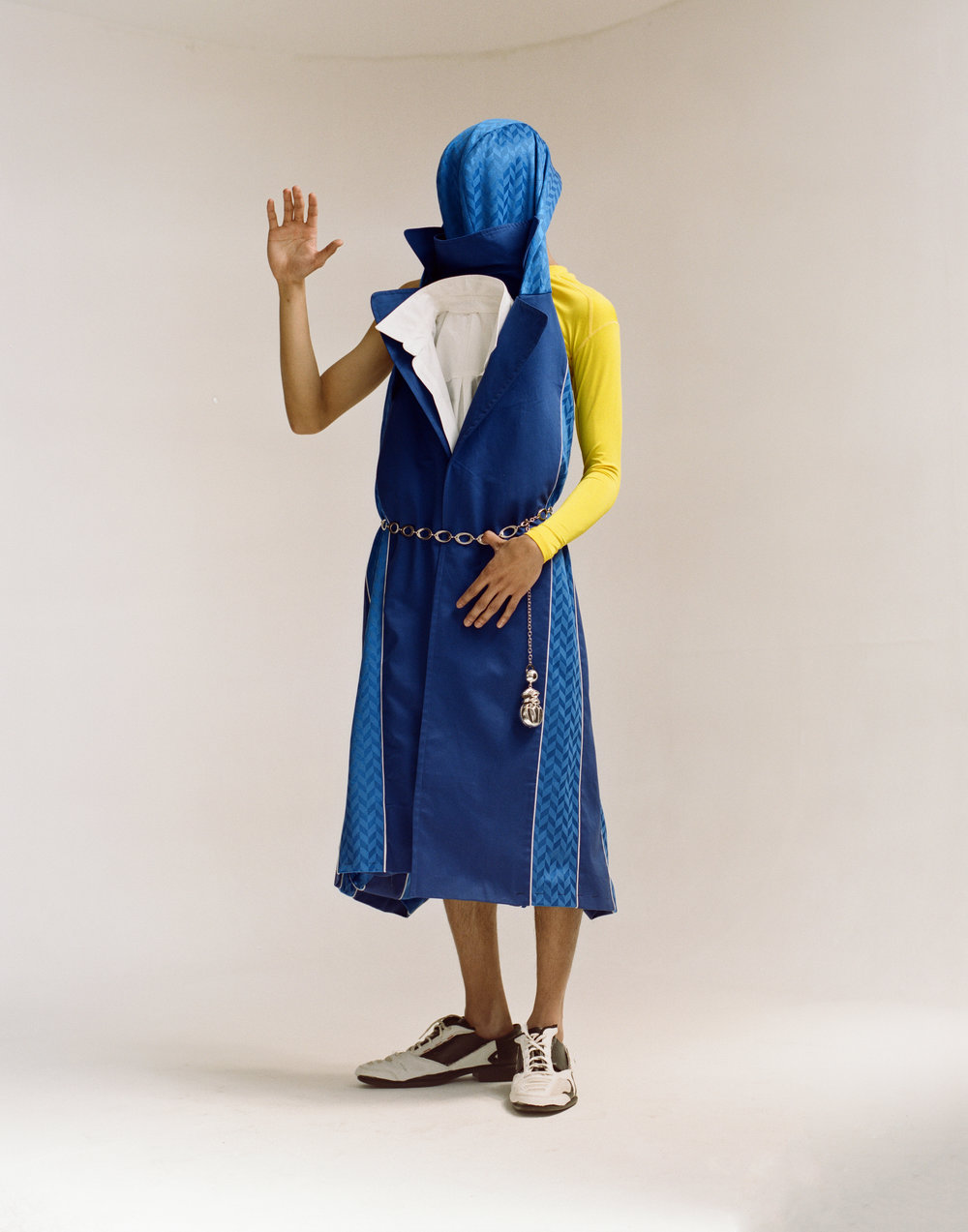
As the detrimental effects of the fashion industry are becoming more and more apparent, a growing number of designers are trying to find the best ways possible to mitigate its consequences. One of these designers is 26-year-old Priya Ahluwalia, who creates upcycled apparel using donated clothing and sustainable materials.
Born and raised in London, England, Ahluwalia has always been passionate about fashion but only began incorporating eco-conscious practices after travelling to her parents’ hometowns in Nigeria and India in 2017, as part of a research project for her MA at the University of Westminster.
For her project, she was tasked with designing clothing for a hypothetical post-apocalyptic world set in 2043, where resources had been exhausted as a result of human impact. To this end, Ahluwalia decided to travel abroad and see first-hand how some areas were already being similarly affected.

What she witnessed during these trips ultimately inspired her to create Ahluwalia Studio, her own clothing company, after graduating in 2018. In Lagos, Nigeria, she observed men and women wearing discarded second-hand clothing that had clearly been shipped from the UK. In Panipat, India, the world recycling capital of second-hand clothing, Ahluwalia saw massive piles of discarded clothing filling the rooms, despite only visiting one of 500 garment recycling companies in the city. Realizing that these occurrences were the result of Western mass clothing consumption, Ahluwalia decided that she not only had to raise awareness for this issue but also use it as inspiration in the design of her clothing.

Shortly afterward, her debut collection, SS19, was released, featuring sporty and tailored pieces created using a patchwork of fabrics. These fabrics included recycled yarn, sustainable bamboo Lycra, and textiles sourced from SEWA Delhi, a social enterprise teaching rural Indian women traditional textile techniques. These compositions gave the clothing a vibrant patchwork of different textures and patterns, in tribute to the vibrant clothing she had seen being worn on the streets in Nigeria and India.
Since then, Ahluwalia has put out another four collections, all of which have been created using a combination of deadstock, damaged stock, donated second-hand clothing, donated excess fabric, organic and recycled cotton, organic lambswool, recycled denim, and recycled nylon. In addition, Ahluwalia has also been looking into sourcing eco-friendly materials that have been created with newer technologies. She has met with Piñatex, for example, a pineapple leather company, and has also been contacted by another company that creates fabric from banana farming.

Through her network of deadstock and second-hand clothing, suppliers have expanded, producing a cohesive collection while trying to avoid overproduction has proven challenging. While most designers create a design and find suppliers to source from later, Ahluwalia instead decides what to create based on the supply of fabrics she can access and the feasibility that she can produce enough like items given that supply. This has resulted in each piece essentially being one-of-a-kind, having the same design as another but possibly being made with different colour or material patches depending on what she has available.
Furthermore, despite her focus on recycled materials and the reduction of mass overconsumption, Ahluwalia prefers not to be branded solely as “sustainable”. Since such brands are often typecasted as being more “eco-friendly” than fashionable, she prefers to create repurposed and recycled clothing that is chic and loved for its aesthetic, not simply because it’s good for the planet.

Evidently, her collections have proven successful. Having won the LMVH Prize in 2020, received the H&M Design Award in 2019, created an exclusive collection for Browns Boutiques in the UK, and collaborated with Adidas for Paris Fashion Week 2019, Ahluwalia has been garnering attention from around the world as an up-and-coming designer of fashionable apparel. She was even featured in the Forbes 30 under 30 European Arts and Culture list in March 2020. Clearly, Ahluwalia Studio is here to stay, and Priya Ahluwalia won’t disappoint us as one of the many young designers realizing that sustainable fashion is key to the fashion of the future.
This article contains an affiliate link. Learn more.





